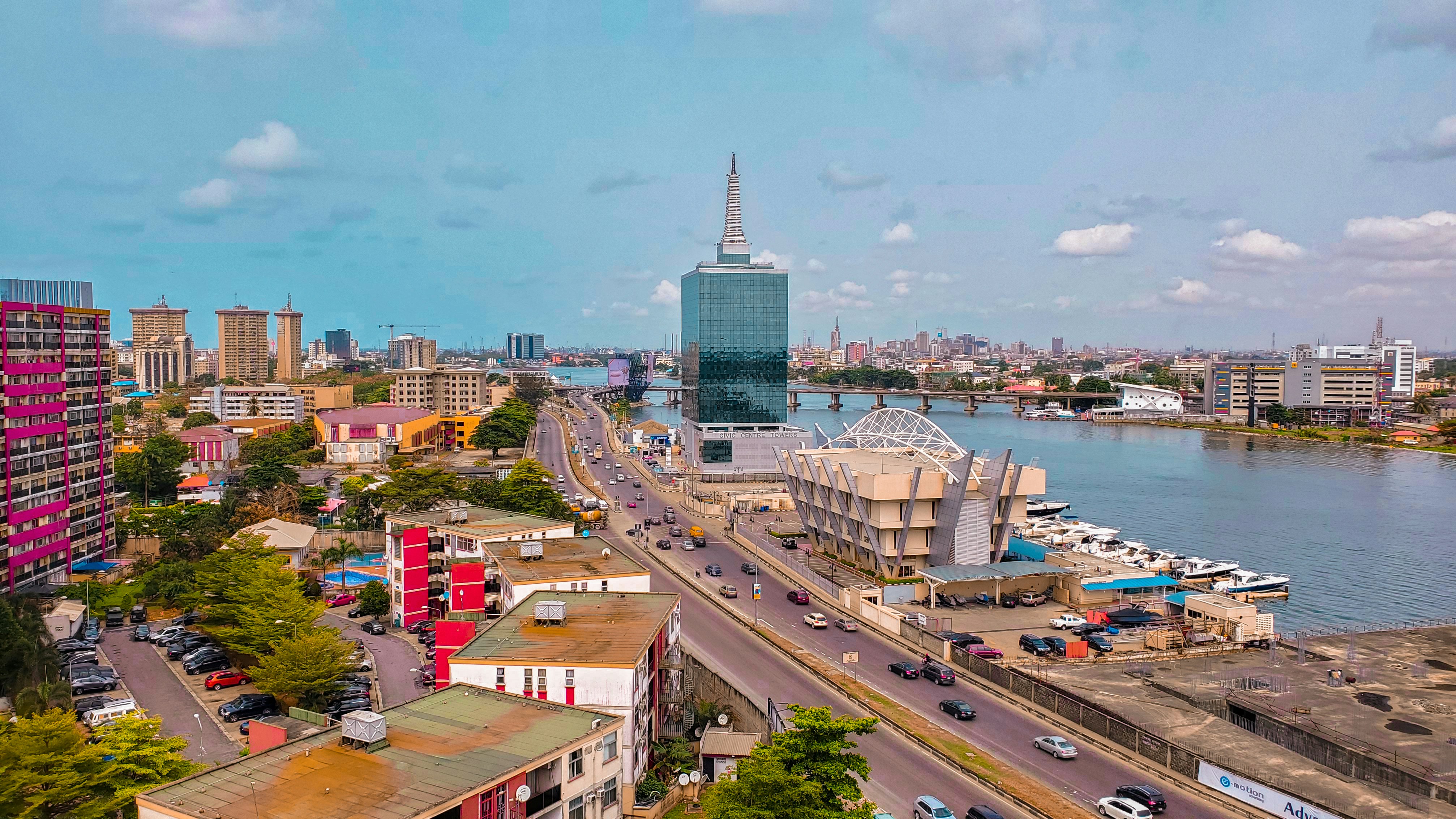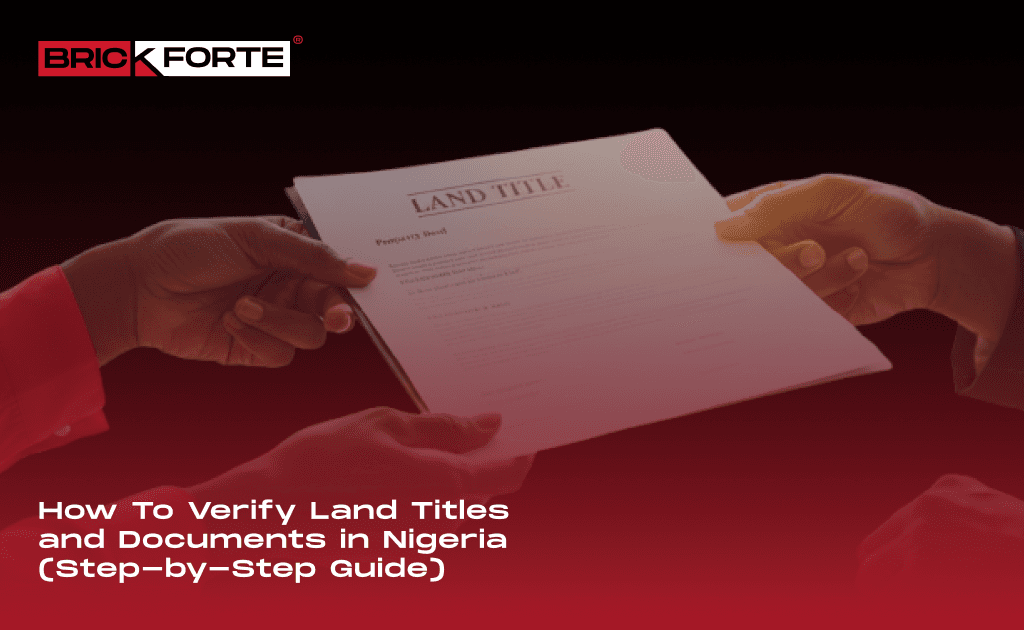Oct 23, 2025
How To Verify Land Titles and Documents in Nigeria (Step-by-Step Guide)
Buying land in Nigeria is one of the smartest long-term investments you can make. But before paying that deposit, you must verify the land titles and ownership documents to avoid being scammed or buying disputed property. At BrickForte, we’ve seen many first-time buyers lose millions simply because they skipped this step.
Here’s a practical, step-by-step guide—using real, relatable examples—to help you verify land documents properly before you buy.
1. Know the Key Land Documents
You’ll likely come across these terms when purchasing land in Nigeria:
Deed of Assignment: This transfers ownership from the seller to the buyer. Example: If you buy a plot in Lekki, Lagos, the Deed of Assignment officially moves ownership from the estate developer to you. It must be registered at the state land registry.
Certificate of Occupancy (C of O): Proves the government has granted the holder legal rights to the land—usually for 99 years. Without a valid C of O, you could be buying government land unknowingly.
Survey Plan: Shows the land’s exact location, size, and boundaries. It should be signed by a licensed surveyor and must align with what’s on site.
Governor’s Consent: In Nigeria, every property transfer needs the Governor’s Consent for it to be legally valid under the Land Use Act.
2. Visit the Land Physically
Never rely on photos or agent promises. Visit the land yourself. Confirm that it exists, matches the survey plan, and has no encroachment. Speak with neighbours or community leaders—they’ll often reveal whether the land is under dispute or owned by a family with multiple claimants.
Example: In areas like Ibeju-Lekki or Ogun, multiple agents might claim to sell the same plot. A quick visit and local inquiry can save you years of legal battles.
3. Verify the Survey Plan
Take the survey plan to the Office of the Surveyor General in your state. They’ll check if the coordinates match government records and whether the land is under acquisition.
If it’s “committed” land, avoid it—it means it’s reserved for government use (like schools or roads).
4. Confirm the Certificate of Occupancy (C of O)
Go to your State Land Registry to verify the authenticity of the C of O. Make sure:
The name on it matches the seller’s.
The document number corresponds with official registry records.
A genuine C of O shows the land is free from encumbrances and fully approved for sale.
5. Validate the Deed of Assignment
Check that it’s registered and stamped. You can confirm this at the Land Registry. A fake or unregistered Deed means the person selling might not be the rightful owner.
6. Obtain the Governor’s Consent
Once you’ve bought the land, apply for the Governor’s Consent immediately. This officially registers your name as the new owner under Nigerian law.
7. Conduct a Land Registry Search
Request an official search at the Land Registry to uncover any hidden disputes, court injunctions, or mortgages on the property.
Many buyers in Abuja or Port Harcourt have lost land because they didn’t know it was collateral for a bank loan.
8. Get a Real Estate Lawyer
Engage a lawyer experienced in property law to review every document and handle verifications. This isn’t the time to cut costs—spending ₦100,000 on due diligence could save you from losing ₦10 million.
Final Thoughts
Verifying land titles in Nigeria might take time, but it’s the difference between owning your dream home and losing your savings to fraud. Whether you’re buying through BrickForte or an independent agent, always confirm authenticity before paying.
SEO Meta Description:
Learn how to verify land titles and documents in Nigeria—step-by-step. This BrickForte guide explains how to check C of O, Deed of Assignment, Survey Plan, and Governor’s Consent to avoid land scams.

Made with ❤️ ~
Studio0x.
